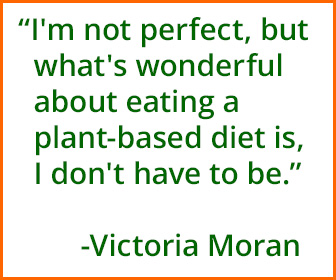Living Gluten Free
These days there are a wide variety of prepared meals available at the store. For those with celiac disease this can pose the vexing question of “should I or shouldn’t I?” There’s higher risk of cross contamination with gluten containing ingredients at the deli, meat or fish counter now just because of the plethora of dishes offered.
At the meat counter take care to watch that the butcher helping you changes their gloves. There’s a fair amount of other work going on behind the counter and in the kitchen. Don’t hesitate to ask the counter person to change their gloves. Because the foods that they make and sell might contain gluten it is be a good idea to rinse meats you purchase when you get home and pat dry before cooking. Sausages, hot dogs and other processed meats may contain gluten and if they’re made at the store it’s important to ask. If you have any doubt as to whether the staff is unaware, it is best to not purchase the product. Turning to packaged sausages where you can look at the ingredient list or search for those labeled gluten free is a good strategy.
The same holds true for the fish counter. In many cases there’s higher risk because they may sell everything from crab cakes to breaded fish. Likewise, there may be soy sauce, blue cheese or other ingredients with hidden gluten that the folks behind the counter don’t see as an issue because they’re not wheat. Frozen individually packaged fish like salmon, tuna, halibut, shrimp that has no coating or breading is a good choice. Do check the ingredients because some contain added salt.
It may be that you are used to purchasing prepared items at the . While we wouldn’t wish celiac disease on anyone, it may be a tremendous opportunity for you to eat healthier and be healthier. Because we have no idea what’s in those prepared foods and there might be a healthy recipe that employees are supposed to follow, it is very possible that more oil, sugar, salt or other ingredients were added than the recipe called for. Likewise, a recipe that might be gluten free could easily be contaminated with gluten containing ingredients. As such, not purchasing prepared foods at the can go a long way to helping you be healthier while at the same time avoid gluten containing products.
It’s better for you to create these recipes yourself not just because you’ll know they are gluten free but you’ll also be able to create meals that are full of flavor but lower in calories and sodium. Making your own marinades or sauces is the best way and really simple. If you don’t feel like cooking there are some choices but it’s important to make sure that seasoning packets are labeled gluten free. Stocking the basic ingredients and making your own recipes is a key step in both being healthy and eating gluten free.
Once you get the foods home be aware that it’s easy for the foods you purchase to be cross contaminated. If there are members of your household who are not eating gluten free, it’s possible for them to contaminate gluten free foods with others that might contain gluten. You can keep specific items for yourself or use a labeling system for items that might be subject to contamination to remind folks to be careful. If someone does accidentally contaminate the peanut butter, mayonnaise or butter, they can mark the label “not gluten free.”
It’s probably a good idea to not use a toaster with both wheat bread and your gluten free versions. The same applies to toaster ovens.
Overall, being careful is key. Check everything at the store for gluten containing ingredients, don’t buy supermarket prepared foods and set up your kitchen so that it’s easy to keep foods and ingredients separate and reduce the risk of cross contamination.



